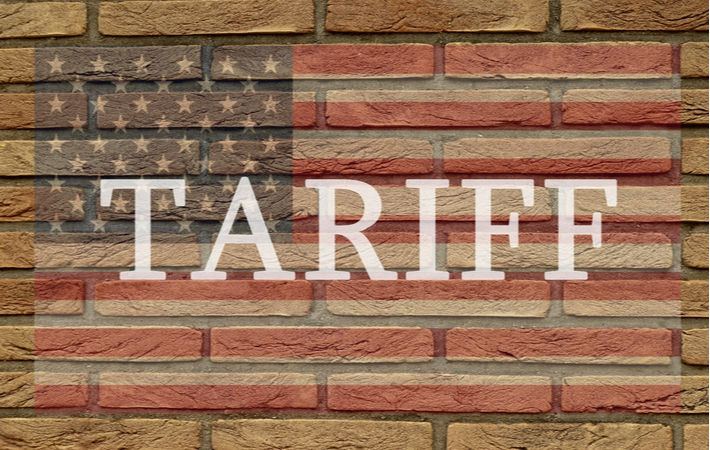Interviews
US trade groups file amicus brief, call USTR tariffs process 'flawed'
10 Aug '21
4 min read

Pic: Shutterstock
The American Apparel and Footwear Association (AAFA) and several other trade organisations recently filed a ‘friend of the court’ amicus brief in the US Court of International Trade in support of businesses and their workers that have been affected by a series of escalating tariffs covering virtually all Chinese imports imposed by the United States Trade Representative (USTR).
“Those proposed tariffs implicated hundreds of billions of dollars of imports and impacted almost every facet of the US economy. Many stakeholders, including amici’s members must plan out their international supply chains and delivery schedules months in advance. Not surprisingly, these businesses needed time to review the hundreds of thousands of products they sell to evaluate the availability and feasibility of alternative non-Chinese sources and to assess impacts on supply chains and retail operations,” according to the amicus brief.
“If USTR had satisfied its obligation to allow for meaningful comments from amici and others and had actually considered them, it would have recognised the considerable harm its actions would inflict. The tariffs are a hidden tax on US consumers, hurting domestic producers, retailers, and customers alike. And, as predicted, they have had a significant adverse impact on the US economy,” it said.
The other organisations are the Retail Litigation Centre, the National Retail Federation, the Consumer Technology Association, the Footwear Distributors and Retailers of America, the Juvenile Products Manufacturers Association and the Toy Association, according to an AAFA press release.
In 2018, following a Section 301 investigation into China’s trade practices regarding forced technology transfer and intellectual property rights protection, the Trump Administration initiated several massive tariffs against Chinese imports. Thousands of American businesses have been forced to pay these taxes to import Chinese goods and products, which ultimately result in higher prices for US consumers.
The Biden Administration has kept these tariffs in place when American businesses are doing their best to safely serve customers, and keep workers on their payrolls, during the pandemic, AAFA said.
In September last year, more than 6,000 plaintiffs filed lawsuits challenging the List 3 and List 4A tariffs as unlawful under Section 301 of the Trade Act of 1974 arguing that the USTR exceeded its authority when it imposed tariffs without attempting to connect them to any underlying investigation of China’s trade practices.
The amicus brief supports the plaintiffs’ arguments and highlights USTR’s violation of its statutory obligations under the Administrative Procedure Act by failing to give adequate opportunity for, or consideration of, public comments.
AAFA and several trade organisations wrote to secretary of the treasury Janet Yellen and USTR Katherine Tai last week urging them to full implement the US-China Phase One Trade Agreement and act swiftly to address the costly, burdensome and retaliatory tariffs.
“We strongly urge the Administration to work with the Chinese government to increase purchases of US goods through the remainder of 2021 and implement all structural commitments of the Agreement before its two-year anniversary on February 15, 2022,” they wrote.
The Phase One agreement did not address some of the significant challenges identified in USTR’s Section 301 investigation of China, nor many of the core structural economic concerns in the relationship, AAFA said in a press release earlier.
Longstanding issues remain unaddressed, including state subsidies; procurement by government and state-owned enterprises; cybersecurity, digital trade, and data governance; services issues; competition policy; regulatory data protection for new drugs, biological products, and other items; Chinese domestic standards-setting; outstanding agriculture policy issues; and continued market access barriers for US-manufactured goods, the letter by the trade organisations stated.
“Many of these topics were reserved for future talks, assuming successful implementation of Phase One. By fully implementing the structural commitments in Phase One and returning to the negotiating table, we are hopeful that progress can be made on these many outstanding concerns,” the letter added.
They also urged the government to retroactively restore product exclusions that expired in 2020 and reinstate a new, fair, and transparent tariff exclusion process.
“Those proposed tariffs implicated hundreds of billions of dollars of imports and impacted almost every facet of the US economy. Many stakeholders, including amici’s members must plan out their international supply chains and delivery schedules months in advance. Not surprisingly, these businesses needed time to review the hundreds of thousands of products they sell to evaluate the availability and feasibility of alternative non-Chinese sources and to assess impacts on supply chains and retail operations,” according to the amicus brief.
“If USTR had satisfied its obligation to allow for meaningful comments from amici and others and had actually considered them, it would have recognised the considerable harm its actions would inflict. The tariffs are a hidden tax on US consumers, hurting domestic producers, retailers, and customers alike. And, as predicted, they have had a significant adverse impact on the US economy,” it said.
The other organisations are the Retail Litigation Centre, the National Retail Federation, the Consumer Technology Association, the Footwear Distributors and Retailers of America, the Juvenile Products Manufacturers Association and the Toy Association, according to an AAFA press release.
In 2018, following a Section 301 investigation into China’s trade practices regarding forced technology transfer and intellectual property rights protection, the Trump Administration initiated several massive tariffs against Chinese imports. Thousands of American businesses have been forced to pay these taxes to import Chinese goods and products, which ultimately result in higher prices for US consumers.
The Biden Administration has kept these tariffs in place when American businesses are doing their best to safely serve customers, and keep workers on their payrolls, during the pandemic, AAFA said.
In September last year, more than 6,000 plaintiffs filed lawsuits challenging the List 3 and List 4A tariffs as unlawful under Section 301 of the Trade Act of 1974 arguing that the USTR exceeded its authority when it imposed tariffs without attempting to connect them to any underlying investigation of China’s trade practices.
The amicus brief supports the plaintiffs’ arguments and highlights USTR’s violation of its statutory obligations under the Administrative Procedure Act by failing to give adequate opportunity for, or consideration of, public comments.
AAFA and several trade organisations wrote to secretary of the treasury Janet Yellen and USTR Katherine Tai last week urging them to full implement the US-China Phase One Trade Agreement and act swiftly to address the costly, burdensome and retaliatory tariffs.
“We strongly urge the Administration to work with the Chinese government to increase purchases of US goods through the remainder of 2021 and implement all structural commitments of the Agreement before its two-year anniversary on February 15, 2022,” they wrote.
The Phase One agreement did not address some of the significant challenges identified in USTR’s Section 301 investigation of China, nor many of the core structural economic concerns in the relationship, AAFA said in a press release earlier.
Longstanding issues remain unaddressed, including state subsidies; procurement by government and state-owned enterprises; cybersecurity, digital trade, and data governance; services issues; competition policy; regulatory data protection for new drugs, biological products, and other items; Chinese domestic standards-setting; outstanding agriculture policy issues; and continued market access barriers for US-manufactured goods, the letter by the trade organisations stated.
“Many of these topics were reserved for future talks, assuming successful implementation of Phase One. By fully implementing the structural commitments in Phase One and returning to the negotiating table, we are hopeful that progress can be made on these many outstanding concerns,” the letter added.
They also urged the government to retroactively restore product exclusions that expired in 2020 and reinstate a new, fair, and transparent tariff exclusion process.
Fibre2Fashion News Desk (DS)
Popular News
Leave your Comments
Yohan Lawrence
Joint Apparel Association Forum (JAAFSL)
Jason Kent
British Textile Machinery Association (BTMA)
Bijou Kurien
Retailers Association of India (RAI)
































-Ltd..jpg?tr=w-120,h-60,c-at_max,cm-pad_resize,bg-ffffff)





.jpg?tr=w-120,h-60,c-at_max,cm-pad_resize,bg-ffffff)
.jpg?tr=w-120,h-60,c-at_max,cm-pad_resize,bg-ffffff)






